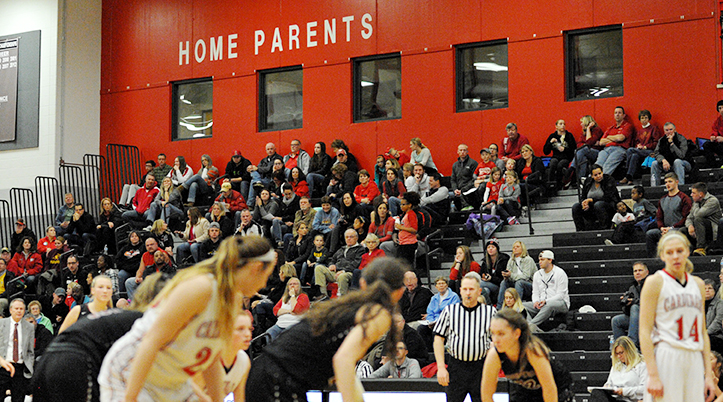Mitigating run-ins with problematic parents
While most parents of athletes are good, supportive people, there are usually a small handful in many settings who are misguided, irritating, and downright problematic. It only takes a very small group to disrupt your program and give you migraine headaches and sleepless nights.
The only way to survive and continue to provide leadership and effective efforts for your program is to develop an approach and plan for dealing with these problematic individuals. Remember, failure to plan is a plan to fail. There are several considerations and steps, therefore, that you should undertake to minimize the negative impact that these parents can have upon you and your program. And don’t just hope that they will go away and disappear, because they won’t.
A good place to start to develop your course of action is to try and understand all parents, and then these distinctly unique ones. There are a few truisms that apply to the vast majority of parents:
good place to start to develop your course of action is to try and understand all parents, and then these distinctly unique ones. There are a few truisms that apply to the vast majority of parents:
- Most want the best for their child, and this would include participation on an athletic team and all of the benefits that are part of the experience.
- Just about every parent loves their child.
- Love overrides logic and reason. This doesn’t mean you should stop using logic and reason in your dealings with parents, you just have to understand that love is more powerful. It could negate these other two approaches to provide explanations or to help reach conclusions.
- Lastly, the policies and procedures that you have within your school and athletic department are normally viewed as good and appropriate until they directly relate to a parent’s child. At this point, these guidelines or regulations have to be immediately changed or amended.
Now, these truisms pertain to ‘normal’ parents with good positive intentions and attitudes. But then, the few misguided problematic ones go way beyond and over the edge of norms and expectations, and it would be helpful to also understand a little about them. Here’s what you should first recognize and grasp about this demanding, time-consuming, and possibly irritating group.
- Challenging people have developed their personalities and approaches over their entire lifetime. This is who they are, and they have perfected their traits.
- Problematic individuals are not just this way with you. They are and have been disruptive, irritating, and obnoxious with practically everyone that they have come in contact with in the past.
- Misguided, irritating individuals don’t simply go away. Even after you successfully handle one situation, there will be more in the future.
Your only hope is to develop an approach to deal with these problematic parents. The following are some concrete practical and helpful steps that you should consider.
- Create and clearly state your standards and expectations for the parents of your athletes.
- Be proactive. What does this mean? Taking action, providing clarification, and interceding before anything develops to the level of being a full-fledged, major problem. A keyword in being proactive is anticipation, and that is developed by going back to what may have happened in the past and projecting to your current situation.

Coach & AD columnist Dr. David Hoch speaking at a conference in 2016. What are the most frequently asked questions or stated concerns in your setting? This should not be difficult to discern and then be prepared to provide logical and reasonable explanations.
- Be prepared. This can extend a little beyond being part of your effort to be proactive. Whenever you have a scheduled meeting or phone call with a parent, always put together a script or an outline to keep the conversation from going off on tangents. Your effort to be prepared also should include having copies of all pertinent policies, guidelines, and documents at your fingertips, and highlighting the specific items for quick and easy reference.
- Set parameters for conversations–either in a meeting or on the phone. Don’t allow yelling to occur, and foul or inappropriate language should not be tolerated. Clearly explain that if any of these missteps take place, the conversation will end at that point.
- Invite a third party, an assistant principal, department chair, or similar individual, to sit in on any meeting that you think might become contentious. The mere presence of this person will normally help to keep the session a little more civil, and he or she can also act as a witness as to what was discussed and transpired.
- Always make notes of any interaction or conversation that you have with misguided, problematic parents, and put them in your folder for difficult individuals.
- Keep your administrators abreast of what transpired and what precipitated your involvement and interaction with this individual. Quite often, parents will go over your head, particularly if they don’t like your explanation or if they feel that you haven’t met their demands.
- Constantly look for new techniques and approaches to take with difficult parents. There will always be new challenges and problems, and this means that you have to also keep learning and adjusting. To accomplish this goal, attend professional conferences, read professional publications such as Coach and Athletic Director, and network with your colleagues.
» ALSO SEE: Hiring an athletic trainer to your department
There is no doubt that misguided, problematic parents represent a major headache and challenge. To survive, you need to develop a plan and continue to update and revise it!





